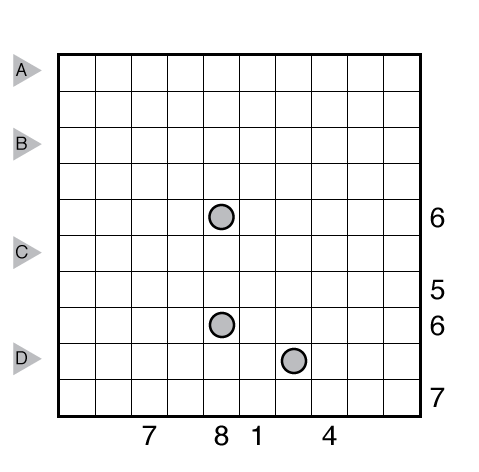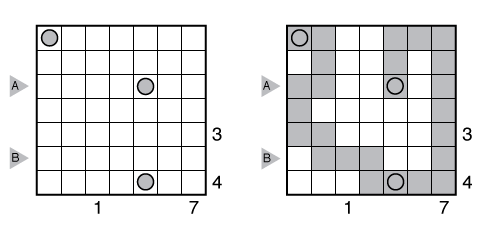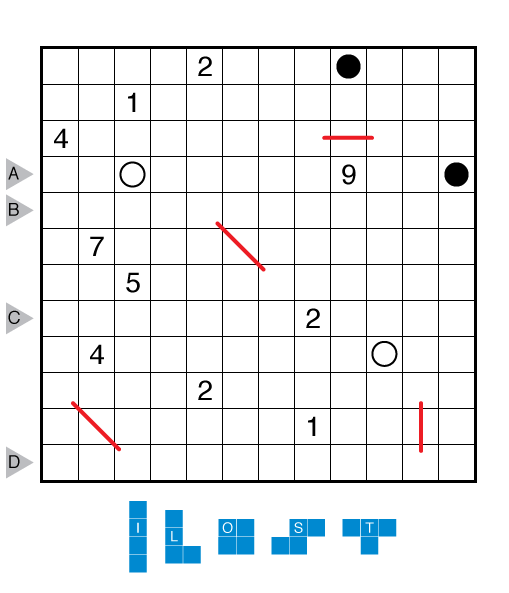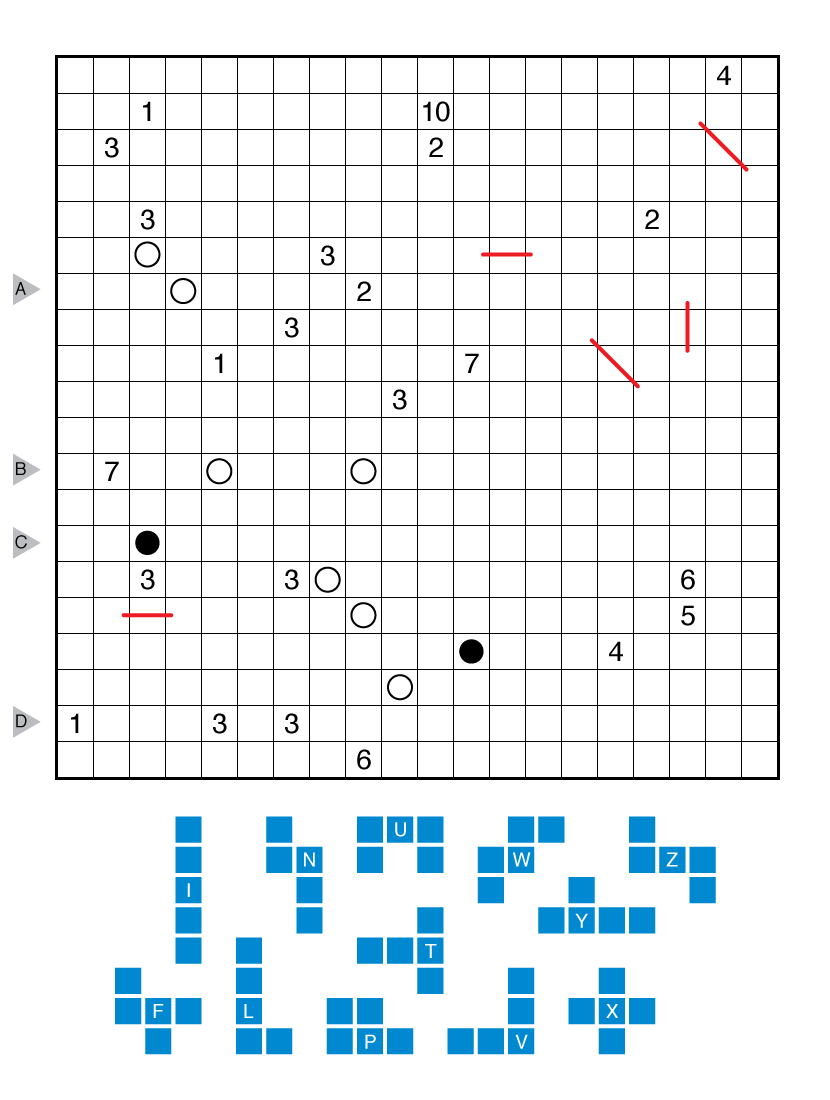
(view directly for a larger image)
PDF
or solve online (using our beta test of Penpa-Edit tools; use tab to shift between shading mode and the linex mode where left click+drag draws lines and right click marks X’s)
Theme: Logical
Author/Opus: This is the 3rd puzzle from guest contributor Yuki Kawabe.
Rules: Combination of Sundoko, Snake, and Shape puzzle styles.
Sundoko: Shade some cells to make sunglasses, consisting of a bridge (a given line, in red) and two lenses made out of orthogonally connected cells that are symmetric with respect to the perpendicular bisector of the bridge. Two lenses may not share an edge, but can intersect at a point. Cells with the bridges are not shaded, except at the bridge ends. Numbers in the grid are unshaded, and indicate the total count of unshaded cells connected vertically and horizontally to the numbered cell, including the cell itself.
Sundoko example:
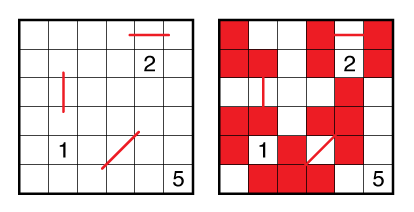
Snake: Shade some cells to create a one-cell wide snake in the grid that does not cross or touch itself, not even diagonally. The snake starts and ends at the black circles and must pass through all white circles.
Snake example:
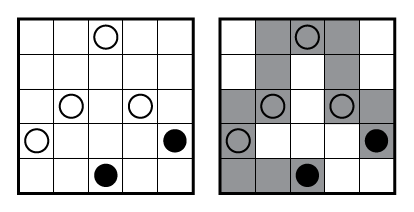
Shape: Place each of the given shapes into the grid exactly once (rotations and reflections allowed). Shapes cannot touch each other, not even diagonally.
Shape example:
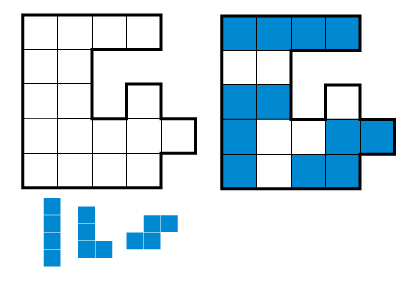
SSS: In SSS, shade some cells to make sunglasses, create a single snake, and place all of the shapes in the grid. Shaded cells of different categories (sunglasses, snake, shapes) cannot share an edge. Number clues referring to unshaded cell counts consider all three categories of objects as shaded cells in this hybrid.
Or see this example:
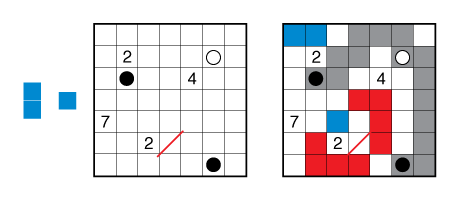
Answer String: Enter the length in cells of each of the shaded segments (sunglasses, snake, and shapes) from left to right for the marked rows, starting at the top. Separate each row’s entry from the next with a comma.
Time Standards (highlight to view): Grandmaster = 16:00, Master = 22:00, Expert = 44:00
Solution: PDF; a solution video is also available here.
